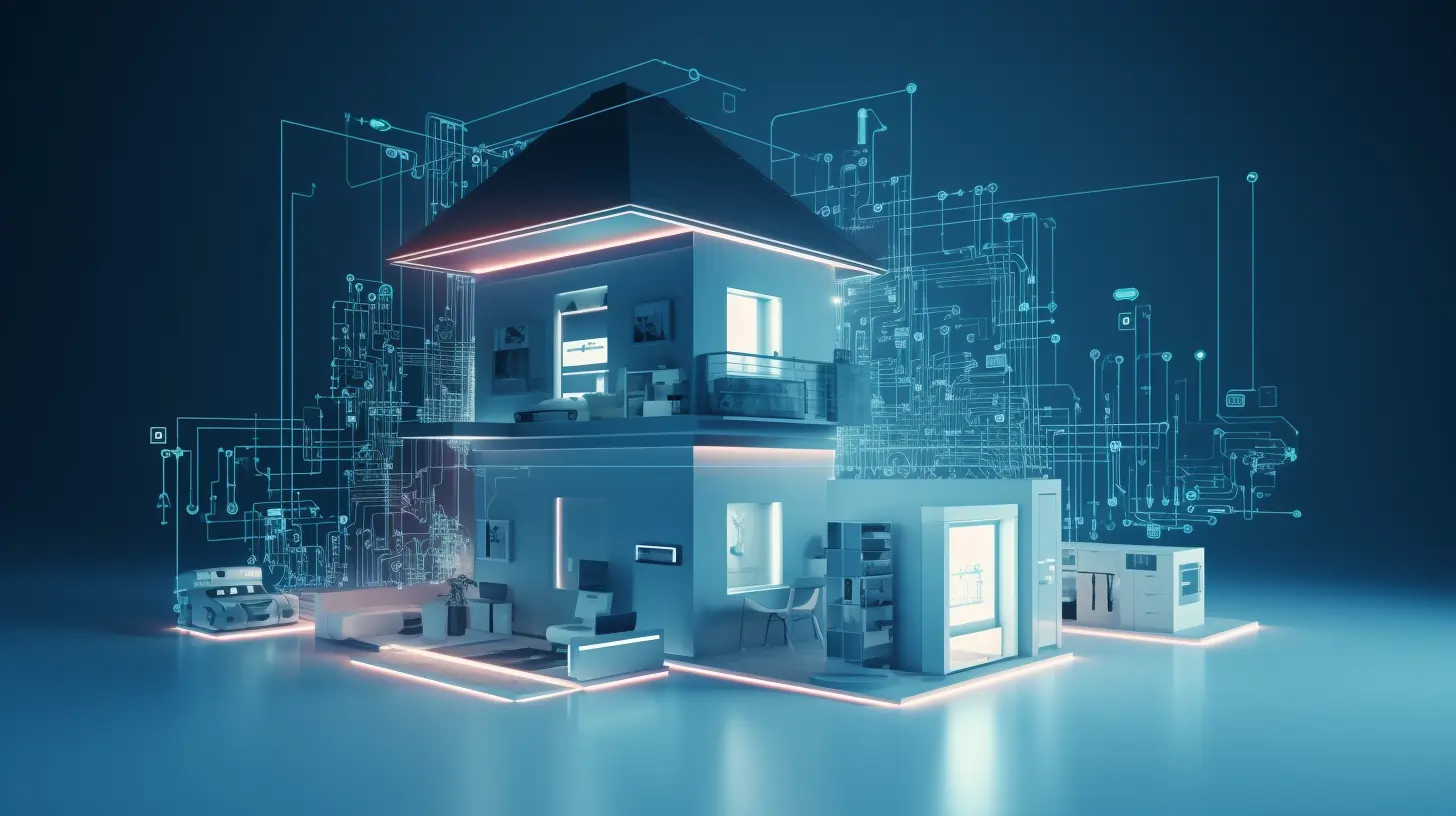Importance of smart homes in the future of home building:
Smart homes are becoming increasingly popular as more and more people recognize the convenience and energy-saving benefits they offer. With the advent of smart home technology, the future of home building is now much more exciting than ever before. In this article, we will explore the reasons why smart homes are the future of home building and how they are coming under budget.
Smart homes are designed to make life easier and more comfortable for homeowners. They are built with integrated technology that can control everything from the lighting to the temperature and even the security system. With smart homes, homeowners have access to a variety of devices that can be controlled remotely, making it easier to manage their homes from anywhere in the world. The convenience of smart homes is one of the main reasons why they are the future of home building. With the use of smart technology, homeowners can manage their homes from their smartphones, tablets, or computers. This means that they can turn on the lights, adjust the temperature, and even monitor their home security while they are away.
Energy Efficiency:
Another reason why smart homes are the future of home building is their energy-saving benefits. With smart technology, homeowners can control the temperature of their homes, adjust the lighting, and even turn off appliances that are not in use. This can lead to significant energy savings and reduce the homeowner’s carbon footprint.
How smart homes are becoming more affordable:
One of the most significant advantages of smart homes is that they are coming under budget. While smart homes were once considered a luxury, the technology has become more accessible and affordable over the years. This means that homeowners can now enjoy the benefits of a smart home without having to break the bank.
The cost of building a smart home has decreased due to the increased availability of smart technology. Many companies are now offering smart home devices at affordable prices, making it easier for homeowners to upgrade their homes. Additionally, with the rise of the Internet of Things (IoT), homeowners can choose from a wide range of devices that are compatible with each other, creating a seamless smart home experience.
Security:
Another reason why smart homes are the future of home building is because of the security they provide. Smart homes are equipped with security systems that include cameras, sensors, and alarms. These systems can detect any suspicious activity and alert homeowners in real time. This means that homeowners can take immediate action to prevent any potential break-ins or burglaries.
Important factors to consider:
The first factor is the type of smart home system to use. There are several smart home systems available, including Amazon Alexa, Google Assistant, and Apple HomeKit. Each system has its own features and capabilities, so it’s important to research and compare different systems before choosing one.
The second factor to consider is the type of devices and technologies to incorporate into the smart home system. These devices can include smart thermostats, smart lighting systems, smart appliances, and security systems. It’s important to choose devices that are compatible with the smart home system being used.
Another factor to consider when building a smart home is the installation process. Some devices may require professional installation, while others can be easily installed by homeowners. It’s important to choose devices that are easy to install and can be integrated seamlessly into the smart home system.
When building a smart home, it’s also important to consider the cost. Smart home technologies and devices can range in price, so it’s important to set a budget and choose devices that are affordable and provide good value for money.
Conclusion:
In conclusion, smart homes are the future of home building. They offer several benefits, including convenience, security, energy efficiency, and cost savings. With the decreasing cost of smart home technologies and devices, more and more homeowners are able to afford smart home systems and devices. When building a smart home, it’s important to consider factors such as the type of smart home system to use, the devices and technologies to incorporate, the installation process, and the cost. By considering these factors, homeowners can build a smart home that meets their needs and budget.

